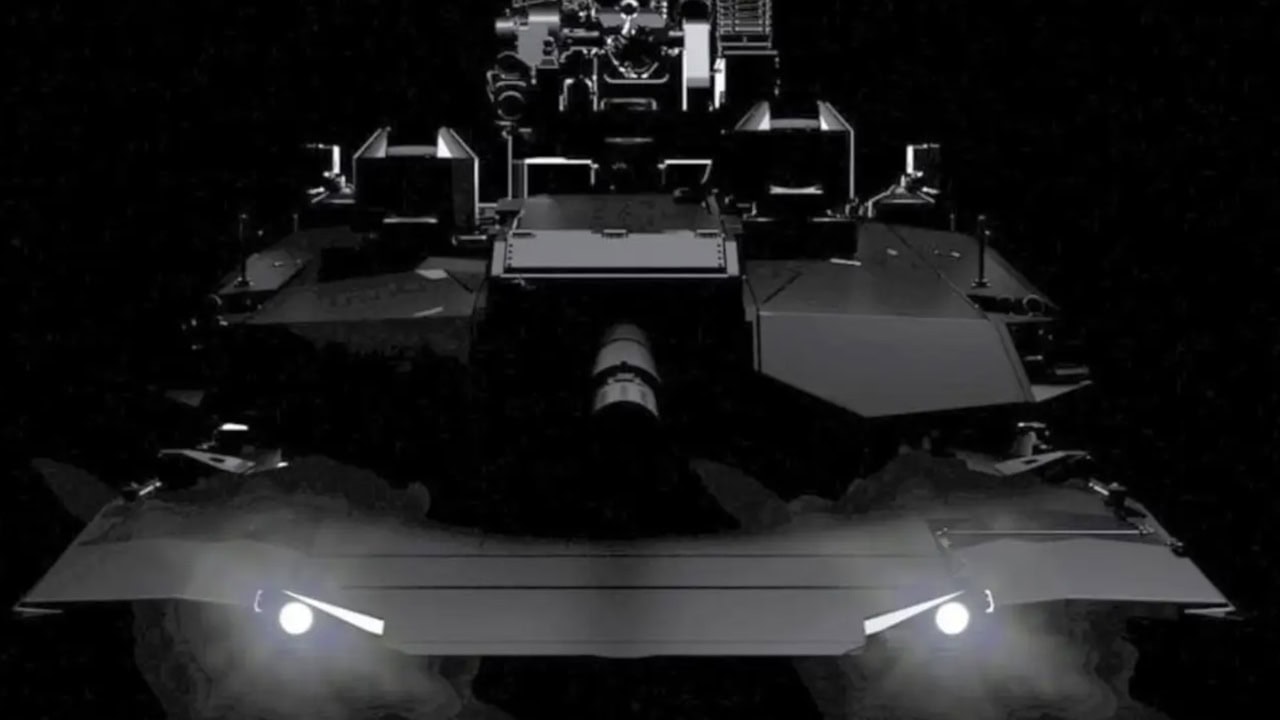The AbramsX, a next-generation main battle tank (MBT) developed by General Dynamics Land Systems (GDLS), promises a significant leap forward in American armored warfare technology. It features advanced capabilities such as a hybrid electric diesel engine, an unmanned turret, artificial intelligence-driven targeting, and enhanced protection systems.
However, the AbramsX is still a tech demo by GDLS. The Army has ordered no prototypes as of yet, so its induction into the US’ tank fleet is not certain.
If the AbramsX program were suddenly canceled, the consequences would be far-reaching, affecting various aspects of military strategy, defense industry, and geopolitical dynamics.
AbramsX Cancel: Impact on Military Strategy
The cancellation of the AbramsX would have a negative impact on the U.S. Army’s modernization efforts.
The AbramsX was designed to address emerging threats on the modern battlefield, including advanced anti-tank weapons, drones, and electronic warfare systems.
Without the AbramsX, the Army would have to rely on older models like the M1A2 Abrams, which, despite upgrades, may not be as effective in countering these new threats.
This could potentially leave U.S. ground forces at a disadvantage in future conflicts, particularly against adversaries who are rapidly advancing their own armored capabilities.
The defense industry might also feel the effects of the AbramsX cancellation. GDLS, the primary contractor for the AbramsX, would face significant financial losses and potential layoffs in the event of a sudden cancelation.
The cancellation could disrupt the supply chain, affecting numerous subcontractors and suppliers involved in the production of the tank’s advanced components, such as its hybrid electric diesel engine and AI systems.
This could lead to a ripple effect throughout the defense sector, impacting jobs and economic stability in regions heavily reliant on defense contracts.
What Makes AbramsX So Important
The AbramsX is not just a new tank; it is a platform for integrating cutting-edge technologies into armored warfare.
Its cancellation would mean a setback for the development and deployment of these technologies.
For instance, the hybrid electric diesel engine promised greater fuel efficiency and reduced logistical burdens, while the AI-driven targeting system aimed to enhance battlefield awareness and decision-making.
Losing the AbramsX would delay the integration of these advancements into the U.S. military, potentially allowing adversaries to close the technological gap.
Is There an Alternative to the AbramsX?
On the geopolitical stage, the cancellation of the AbramsX could be perceived as a weakening of U.S. military capabilities.
Adversaries such as Russia and China, who are actively developing their own advanced tanks like the T-14 Armata and China’s newest 4th Gen Tank, might view this as an opportunity to assert their dominance in armored warfare.
Allies, on the other hand, might question the reliability of U.S. military support and its commitment to maintaining technological superiority. This could lead to shifts in alliances and defense strategies, particularly in regions where armored warfare plays a crucial role, such as Eastern Europe and the Indo-Pacific.
What to Do if AbramsX Is Cancelled?
In the absence of the AbramsX, the U.S. Army would need to explore alternative solutions to maintain its armored capabilities.
One possibility is to accelerate the development and deployment of the M1A3 Abrams, which includes some technological upgrades but does not match the comprehensive advancements of the AbramsX.
Another option could be to invest in unmanned ground vehicles (UGVs) and other autonomous systems to complement existing tank fleets.
These alternatives, however, would take time and resources to develop and may not fully compensate for the loss of the AbramsX’s capabilities.
Does the US Desperately Need the AbramsX? Well…
For sure, the cancellation of the AbramsX would have many impacts. It could influence future defense procurement strategies, leading to more cautious and risk-averse approaches to developing new technologies.
The cancellation might also prompt a reevaluation of the role of main battle tanks in modern warfare, potentially accelerating the shift towards more flexible and dispersed force structures. This could have profound implications for how the U.S. military plans and conducts operations in the future.
On the other hand, there is also the possibility that the technology used in the AbramsX gets incorporated into other future projects.
Its cancelation may lead to a new and better tank that is more prepared to face the challenges of future battlefields.
The sudden cancellation of the AbramsX would have wide-ranging and significant consequences. It would impact military strategy, the defense industry, technological development, and geopolitical dynamics.
While alternative solutions could mitigate some of these effects, the loss of the AbramsX would represent a major setback for the U.S. Army’s modernization efforts and its ability to maintain a technological edge on the battlefield.
As such, the decision to cancel such a pivotal program would need to be carefully weighed against the potential risks and challenges it would entail.
However, if the AbramsX were canceled, it would not be the end of the world for the US. The Army has tried on multiple occasions to replace the Abrams, but all such projects have failed so far.
Does the US need the AbramsX? Not necessarily.
While the AbramsX would add numerous advanced capabilities to the Army, the M1 Abrams is still capable enough to handle most threats in the right circumstances.
The AbramsX would be nice to have, but its cancelation would not end US hegemony.
About the Author: Isaac Seitz
Isaac Seitz, a 19FortyFive Defense Columnist, graduated from Patrick Henry College’s Strategic Intelligence and National Security program. He has also studied Russian at Middlebury Language Schools and has worked as an intelligence Analyst in the private sector.
More from 19FortyFive
Why Canada’s Fear of a ‘Rogue America’ is Deeply Misguided
Russia’s New Tu-160M Bomber Can Be Summed Up in Just 2 Words

